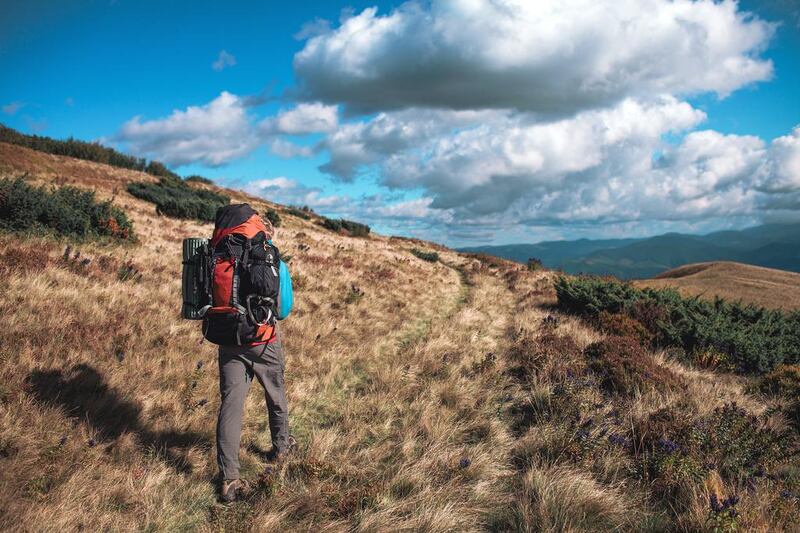How wonderful it is that the world is full of special people who go through life without the need to conform, and in doing things very differently they inspire, awe and often touch numerous people's lives.
An example is a friend who has, for more than a decade, chosen to live in Dubai's cheaper flats - even though she earns a whopping salary that would be the envy of many - because she's building schools in Africa.
She is exceptional. Never having struggled with ego or the need to show what she's "worth", she has been consistent in the way she lives and views life.
But for most of us, it usually takes a life-changing epiphany to get us to really dig and discover what our life should be about.
Let me share with you the story of Karl Haddad. He traded Bentleys for backpacks and went on what many can only dream of - a four-year sojourn that took him to more than 40 countries - during which he touched the lives of more than 2,000 people and gave away US$1.7 million.
Ah, but of course he can if he was driving Bentleys is what you're probably thinking. Well, yes, he was in the money, because he was in the right profession at the right time in the right place. He was in real estate at the peak of the boom in the UAE - in one deal alone he sold villas worth US$97 million to a Kazakh investor - his first big deal; a game-changer that netted him $200,000.
Ever the enterprising spirit, days before he turned 30 Karl fulfilled a childhood promise he'd made to himself and deposited the cheque that would make him a cash millionaire.
That summer Karl went on a spending bender that would make Hollywood royalty proud. More than $150,000 gone within three weeks.
This is how: "I had breakfast in a tuxedo every morning. I was driving around in a rented convertible Bentley. It got under my skin. All became about showing off. Fancy cars. Crazy nights out. Excess. It poisoned me. I became the worst thing money can do to someone."
A few days after coming back to the UAE - while resting from what he'd indulged in - Karl realised that he'd become the type of person that he looked down on: his ego had taken over: He was showing off, interactions with people were transient and shallow.
He missed sharing, giving and connecting with people in a more meaningful way.
Change was vital. It was time to give back and regain balance. Looking for charities and projects to donate to, he realised that the smaller, grass roots set-ups were losing out because they didn't tick all the bureaucratic boxes to access funding. With that in mind, Karl FedExed the contents of his house back home to Cyprus, bought his first ever backpack and set off to find them, and donate his time and abilities, as well as his money.
I'll let you discover what he did over the course of his journey - there's a Ted talk out there that you can watch. What I'd like to do is focus on what money did to him and for him, and what we can take away from his story.
Karl is now back in Dubai, planning to launch his next venture.
He has to earn a living.
Having money got him to the point where he could take a chunk of time out and do what he wanted.
But the man whose mother called him the family banker didn't put his own financial house in order before embarking on his mission.
He thought he had a pension plan: he'd set up a successful hospitality fund in Bahrain that should have brought in enough money for him to live as he wished for ever - but then 2011 happened.
"My biggest mistake was that I didn't plan for disaster. I couldn't imagine Bahrain having a crisis."
Which is when Karl sold his share for cents on the dollar in a knee-jerk reaction, having heard about the troubles while in a jungle in Latin America.
Was it selflessness or folly that sees him having to start all over again and build up a financial and life base?
It goes without saying that Karl is a special person. But.
If he had been a bit more selfish and made sure he was financially sustainable, he'd have the option of continuing to touch people's lives in different ways.
Plus, getting back in the work saddle isn't easy: "Being away for four years was career suicide. You don't buy the trust of investors and clients, it's earned over time. You lose touch."
Karl is lucky. He knows what his best life is. I'm sure he wouldn't trade what he experienced for anything - but we all need to fund our lives - so if you're going to give, make sure your financial pillars are firmly in the ground. Let's hope Karl nails his soon so that he continues his other work - building a community of people who want to make a difference - but don't know where or how to start.
Nima Abu Wardeh is the founder of the personal finance website cashy.me. You can reach her at nima@cashy.me.
Follow us on Twitter @TheNationalPF
Feather your own nest before taking flight
A life lesson on how success may bring you great wealth - money that you can share with others. But you must put your own financial affairs in order first.

Editor's picks
More from the national




